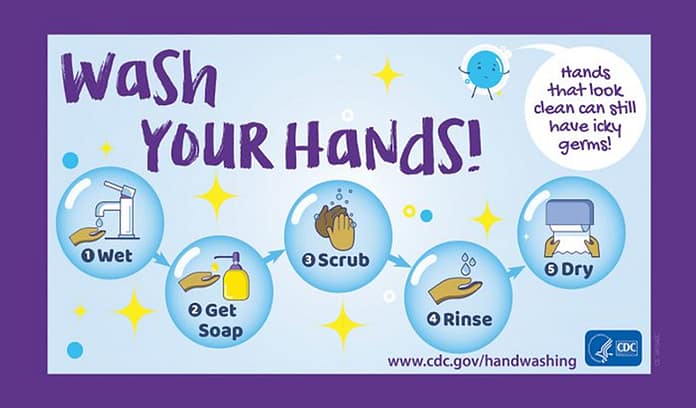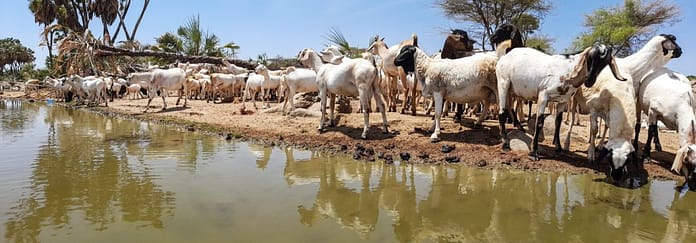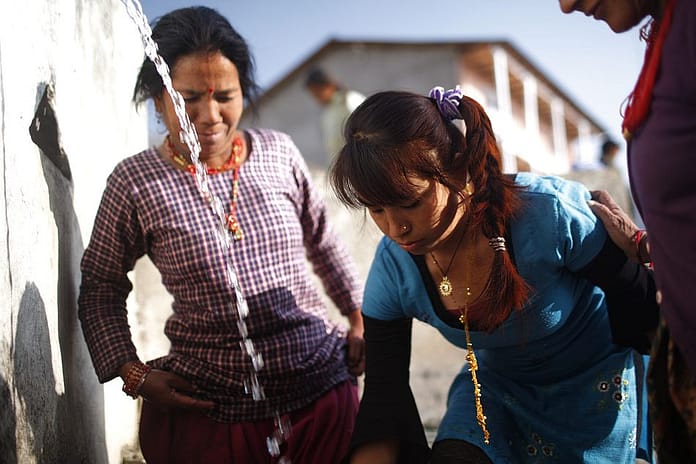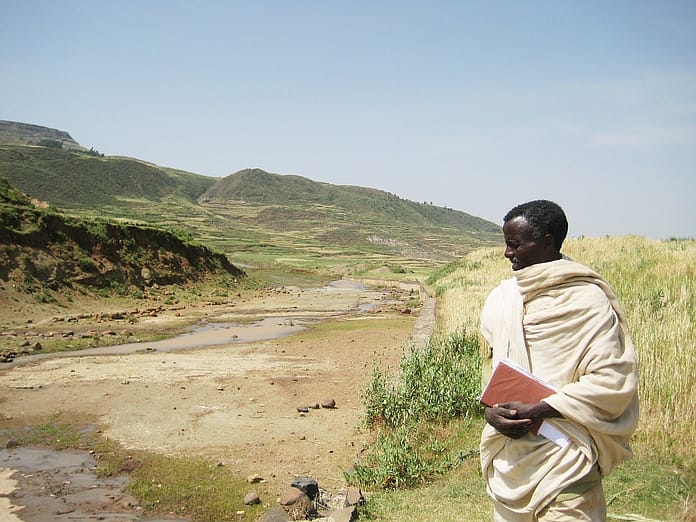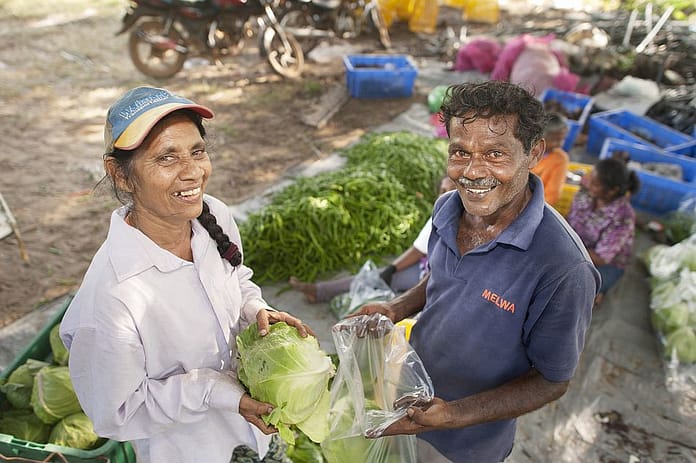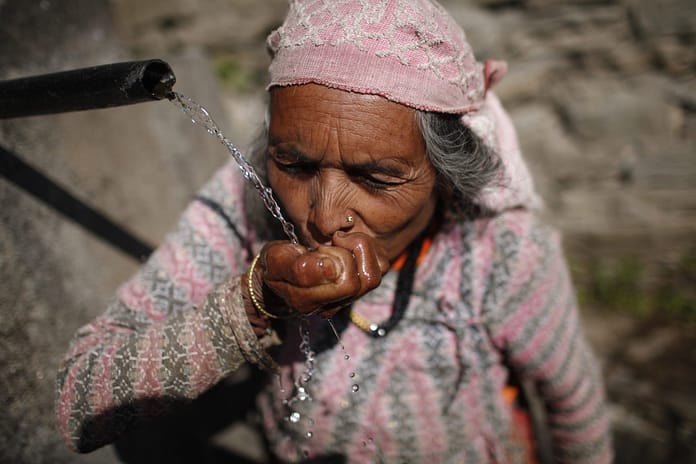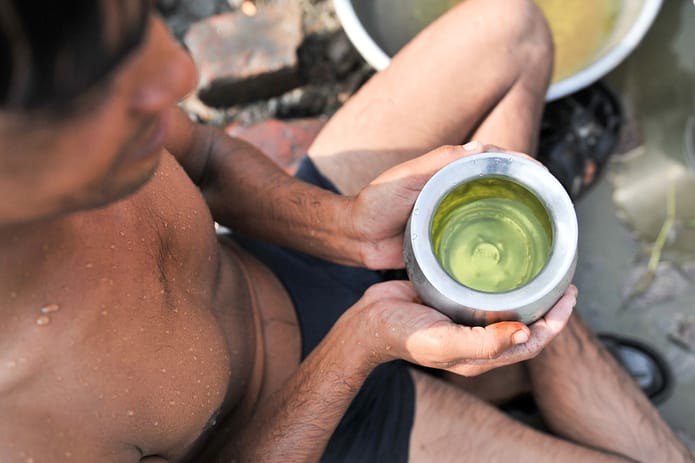
In Nepal, although 95% of the population has access to basic drinking water, only 16% of the population uses a safely managed drinking water service. Likewise, 51% of the population uses a safely managed sanitation service, and 64% have a handwashing facility with soap and water available at home. Considering these figures, Nepal needs to make significant progress to achieve Sustainable Development Goal (SDG) 6 – ensure access to water and sanitation for all. Socioeconomic disparities, climate risks, and extreme weather events further hinder access to water, sanitation, and hygiene (WASH), disproportionately affecting women, persons with disabilities, Dalits and marginalized groups.
Last year, the International Water Management Institute (IWMI) in collaboration with Bagmati Welfare Society Nepal, the Global Institute for Interdisciplinary Studies (GIIS), Everest Club, Dailekh and the National Association of Rural Municipalities in Nepal concluded the ‘Addressing climate vulnerability in Nepal through resilient inclusive WASH systems’ (RES-WASH) project.
During various knowledge sharing workshops at district, provincial and national levels throughout 2024, diverse stakeholders delved into the critical intersection of climate change and WASH from an inclusivity and resilience lens. The following five takeaways of these discussions are crucial for further advancing Nepal’s WASH policies and making them climate-resilient and inclusive.
Considering climate risk is critical for sustainable WASH solutions
Climate change poses significant challenges to the WASH sector as vulnerabilities are intensified, and essential services disrupted. Rising temperatures and changing precipitation patterns lead to water scarcity, reduced groundwater recharge, drying springs and contamination of water sources. Extreme weather events such as floods and droughts severely damage WASH infrastructure, hindering access to safe drinking water and sanitation facilities. These disruptions heighten the risk of waterborne diseases, particularly among marginalized communities.
“The WASH sector is highly sensitive to the impacts of climate change. Disruptions in WASH services due to hazards and extreme weather events directly affect rural households, where water storage facilities are often inadequate,” said Kavitha Kasyanathan, Head of Development at the Australian Embassy in Kathmandu during one of the stakeholder engagements.
Nepal has experienced an increasing frequency and intensity of extreme weather events, as evident in disasters such as floods and landslides, for example the September 2024 floods in Central Nepal that damaged over 1,600 water supply schemes, resulting in economic losses of $42 million.
Addressing these challenges demands climate-resilient WASH systems, sustainable water management practices, and inclusive planning to safeguard long-term water security and public health.
A holistic approach to development is essential
Nepal’s current state resembles a “cocktail” of climate change, weak governance, and unplanned development. Globally, Nepal is one of the countries most vulnerable to the impacts of climate change; its challenges are exacerbated by poor planning and weak governance, limited resources, inadequate capacity, inequality, and low public awareness. These factors have led to unsustainable solutions that undermine long-term consequences, deepening the nation’s vulnerability — particularly in the WASH sector.
To address these challenges, a holistic approach to development is essential — not only in WASH but across all sectors. Prioritizing effective solutions that account for the needs of marginalized groups is crucial for sustainable development.
Enhancing WASH access requires prioritizing inclusivity
WASH service delivery often prioritizes infrastructure development for drinking water and sanitation services. However, it is essential to shift the perspective beyond engineering solutions and consider not just what is being built but for whom. Barriers to WASH access are not solely physical, geographical, or infrastructural, but also social, including existing social hierarchies and structural discrimination. Enhancing WASH access requires prioritizing inclusivity and addressing systemic inequalities.
While innovative water supply and sanitation technologies may seem efficient under ideal conditions, WASH practitioners must ensure that they are reliably used by the community to be effective – which remains a significant challenge.
For this, project partners recommended that these solutions be low-cost, sustainable, and socially and locally adaptable.
A human rights-based and intersectional approach is essential
To ensure that the rights, dignity, and needs of all individuals — especially persons with disabilities — are recognized and addressed, a human rights-based approach is essential in WASH.
Disability should be viewed as a combination of impairment and barriers (physical, institutional, attitudinal, cultural, structural, information, etc), rather than a fixed condition.
To truly address the needs of persons with disability, the current welfare- and charity-based approaches should shift towards a human rights-based approach.
Moreover, the disproportionate impacts of climate change on persons with disabilities necessitates specific attention and targeted solutions. Development actors — including researchers, policymakers, and implementers — must adopt a disability-inclusive and intersectional approach in the context of WASH and climate change.
Climate financing to make WASH more climate-resilient
Despite Nepal’s vulnerability, climate finance has been largely overlooked in the WASH sector. Investing in climate finance for the WASH sector could significantly enhance climate resilience, improving the socio-economic conditions of poor and vulnerable communities.
To achieve this, the sector must be prepared to effectively advocate for and utilize climate finance, including funds for loss and damage.
Collaboration, innovative solutions, and a commitment needed to leave no one behind
While progress has been made in providing basic drinking water access, only a limited portion of the population uses safely managed water services, and significant gaps remain in sanitation and hygiene. Climate change has made these issues worse by disrupting water availability, damaging infrastructure, and putting women, girls, persons with disabilities, Dalits and marginalized groups at greater risk.
The project emphasized the need to move beyond building infrastructure to focus on people-centric solutions that promote inclusion and address social inequalities. Including the perspectives of women, persons with disabilities and marginalized groups in the planning stages of WASH services is essential to truly meet the needs of all. A better use of climate finance can help communities prepare for and recover from climate change impacts. By improving governance, encouraging collaboration, and using affordable, locally adaptable solutions, Nepal can build a more inclusive and climate-resilient WASH sector.
Achieving this goal will require teamwork, innovative ideas, and a commitment to ensure no one is left behind.


